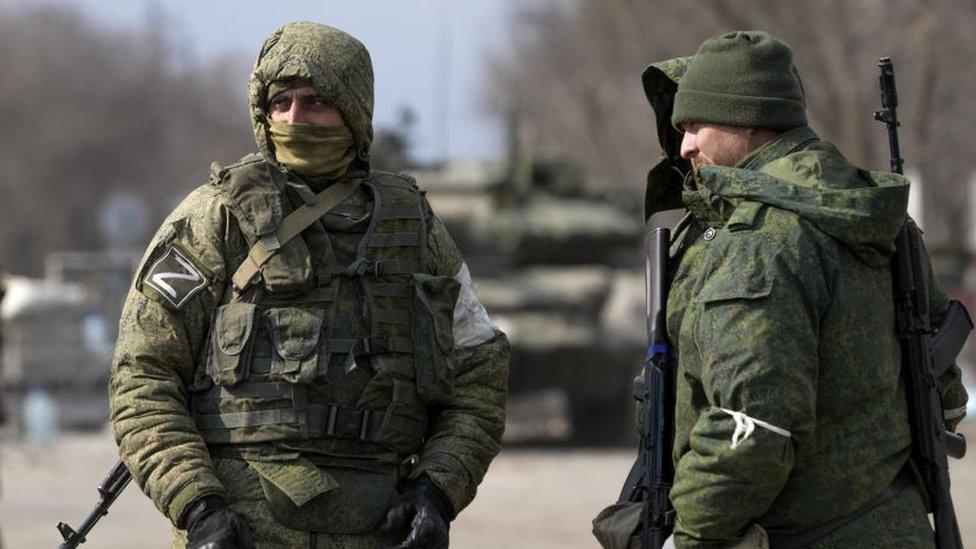Ukraine War: Putin demands Mariupol surrender to end shelling
- Published
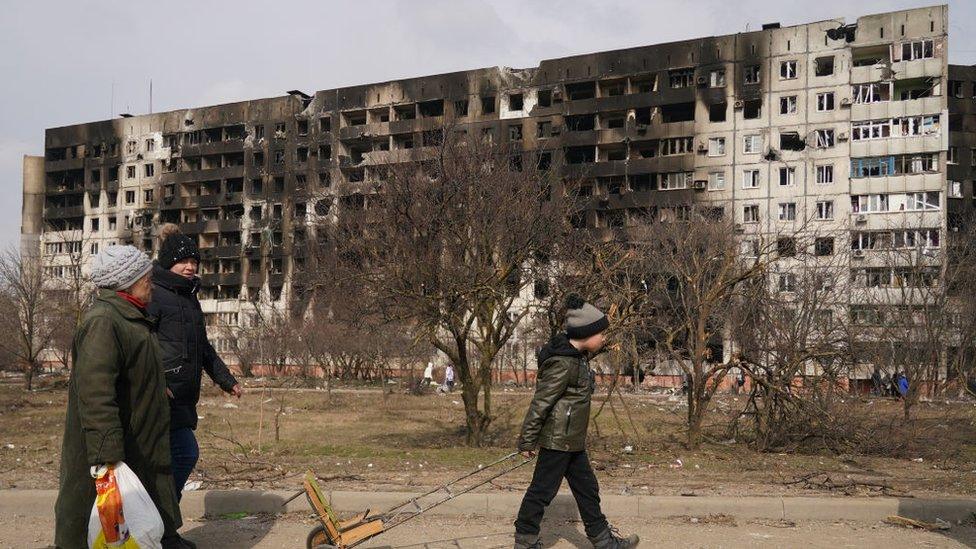
Russian President Vladimir Putin has said that shelling of the besieged Ukrainian city of Mariupol will only end when Ukrainian troops surrender.
Mr Putin made the comments during an hour long phone call with French President Emmanuel Macron on Tuesday night, the Kremlin said in a statement.
But French officials said the Russian leader had agreed to consider plans to evacuate civilians from the city.
Russia later proposed a one-day ceasefire for Thursday.
The defence ministry said the ceasefire would start at 10:00 local time (08:00 BST) and would allow people to travel westwards to Zaporizhzhia via the Russian-controlled port of Berdyansk.
On Thursday morning, Ukrainian deputy prime minister Iryna Vereshchuk said a convoy of Ukrainian buses was on its way to Mariupol to try to evacuate civilians.
She said the International Committee of the Red Cross had confirmed that Russia had agreed to open a humanitarian corridor to the city.
Previous attempts to establish a ceasefire in Mariupol have collapsed amid accusations of bad faith from both sides. Russia has also been accused of forcibly relocating thousands of civilians to Russia or Russian-controlled areas.
The announcement comes as new satellite photos showed the destruction caused by the shelling.
The images, released by the Earth observation company Maxar, showed that residential areas have been reduced to rubble and highlighted Russian artillery cannons in firing positions on the outskirts of the city.
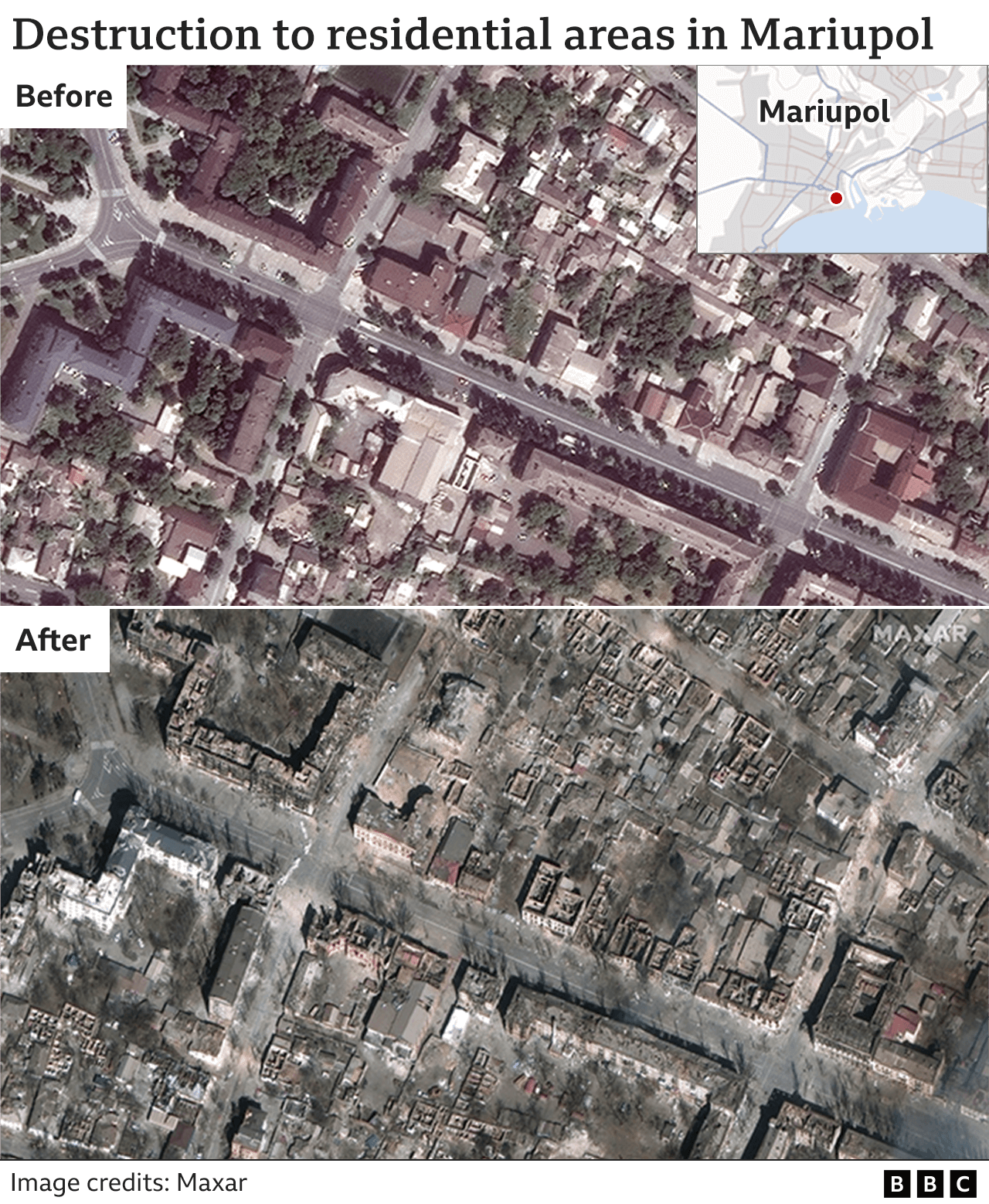
Officials from France's Elyseé palace called the situation in the city "catastrophic" and added that "civilian populations must be protected and must leave the city if they wish to. They must have access to food aid, water and the medicines they need".
"This very degraded humanitarian situation is linked to the siege of the city by the Russian armed forces," the statement said.
France, along with Turkey, Greece and several humanitarian groups, have presented Mr Putin with a plan to evacuate the city.
Officials said that Mr Putin told Mr Macron that he will "think about" the proposal.
But in its readout of the call, the Kremlin appeared to suggest that Mr Putin has provided no such assurances.
Russian officials said Mr Putin told the French leader that "in order to resolve the difficult humanitarian situation in this city, Ukrainian nationalist militants must stop resisting and lay down their arms".
The statement added that Mr Putin had given Mr Macron "detailed information about measures taken by the Russian military to provide emergency humanitarian assistance and ensure the safe evacuation" of civilians from the besieged south-eastern city.
Ukraine has accused Russia of forcibly relocating thousands of people from Mariupol to Russian-held territory.
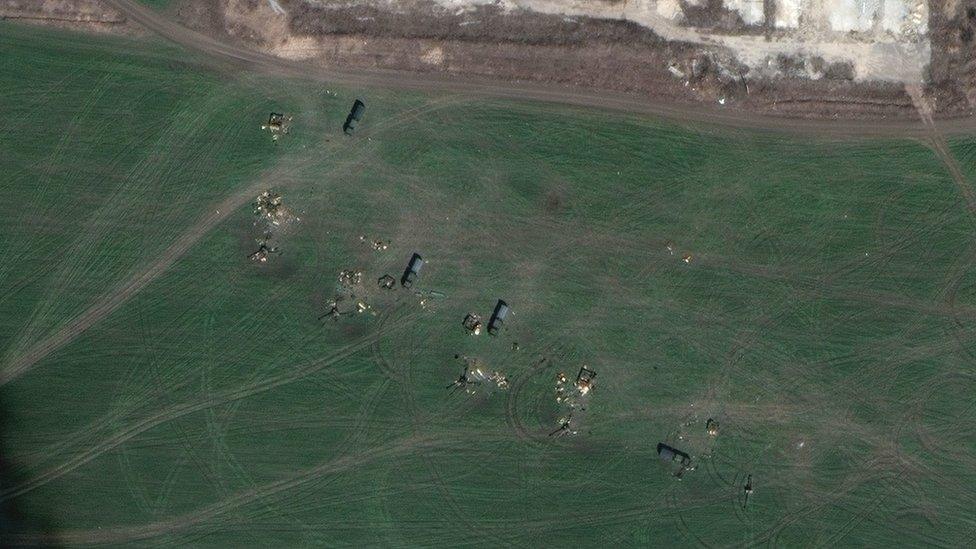
Russian artillery positions on the periphery of Mariupol
The call followed claims by the mayor of Mariupol that thousands of people have been killed during the Russian bombardment of the port city.
Vadym Boychenko, who has been evacuated from the city, told the Reuters news agency that almost 5,000 people, including around 210 children, have been killed since Russian shelling began.
Matilda Bogner, the head of the UN human rights mission in Ukraine, told Reuters that she believes "there could be thousands of deaths, civilian casualties, in Mariupol".
The International Red Cross humanitarian organisation has confirmed reports that one of its warehouses in the city has been hit by Russian shelling, telling the BBC that all supplies in the depot had already been distributed.
It added that it no longer has "a team on the ground" and therefore could not comment on potential extent of casualties or damage.

Are you or your family in Mariupol? Are you affected by events in the region? Please share your experience if it is safe to do so by emailing haveyoursay@bbc.co.uk, external.
Please include a contact number if you are willing to speak to a BBC journalist. You can also get in touch in the following ways:
WhatsApp: +44 7756 165803
Tweet: @BBC_HaveYourSay, external
Please read our terms & conditions and privacy policy
If you are reading this page and can't see the form you will need to visit the mobile version of the BBC website to submit your question or comment or you can email us at HaveYourSay@bbc.co.uk, external. Please include your name, age and location with any submission.
Related topics
- Published27 March 2022
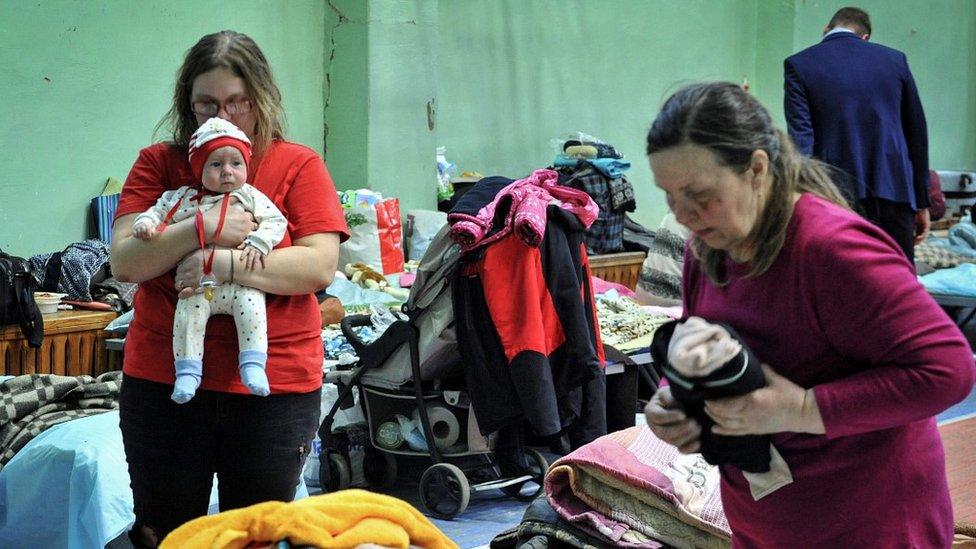
- Published21 March 2022
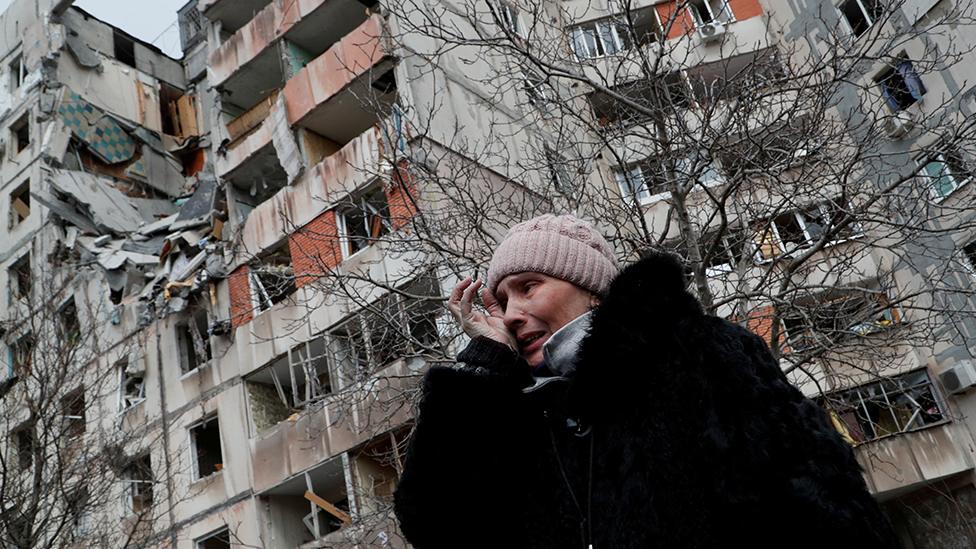
- Published21 March 2022
